1 of 5

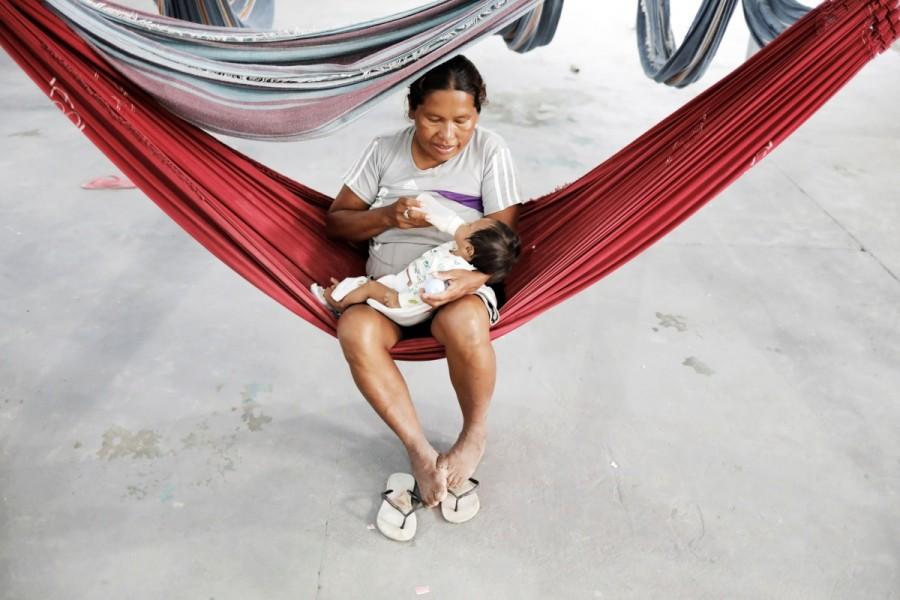
An indigenous Warao woman, from the Orinoco Delta in eastern Venezuela, bottle feeds her baby at a shelter in Pacaraima, Roraima state, Brazil November 15, 2017. An indigenous tribe that journeyed hundreds of kilometers to flee the economic crisis in Venezuela has been trapped in limbo near the border in Brazil, after it was moved off the streets of the Amazon city of Manaus.
Credit: Reuters
2 of 5

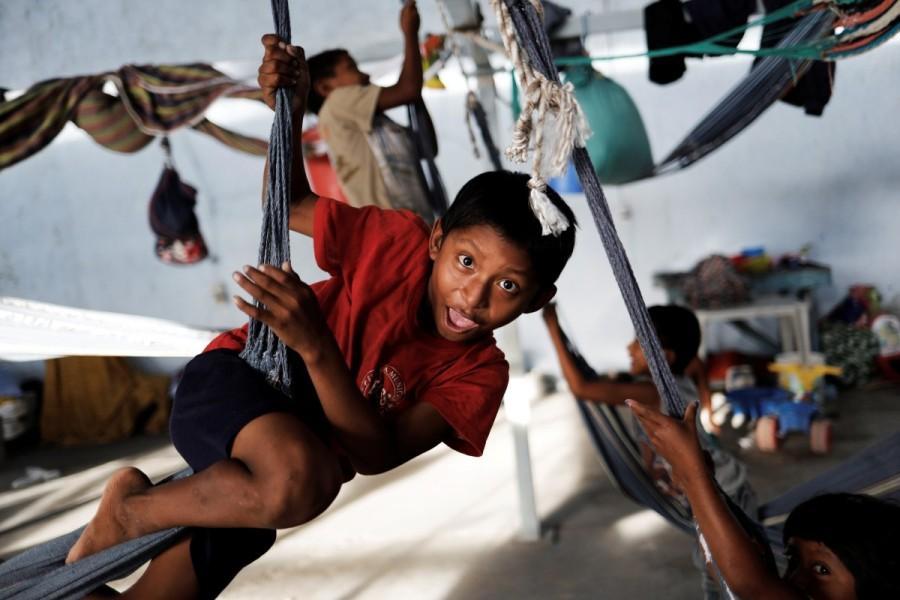
Indigenous Warao children play on hammocks at a shelter in Pacaraima, Roraima state, Brazil. Driven by hunger and illness from their traditional homeland on the Orinoco River delta in northeastern Venezuela, more than 1,200 members of the Warao tribe migrated to northern Brazil to live and beg on the streets.
Credit: Reuters
Advertisement1
3 of 5
![An indigenous Warao child receives nebulizer therapy by his mother at a shelter in Pacaraima, Roraima state, Brazil. "They were already begging in Venezuela, but those who gave them money are themselves asking for help today," said Sister Clara, a missionary from Brazil-based humanitarian organization Fraternidade that runs two shelters for the Warao. "Who in today's crisis in Venezuela is going to buy Warao arts and crafts?" she said. Venezuela's indigenous,Venezuela indigenous,Venezuela,Orinoco River delta,Warao tribe]()
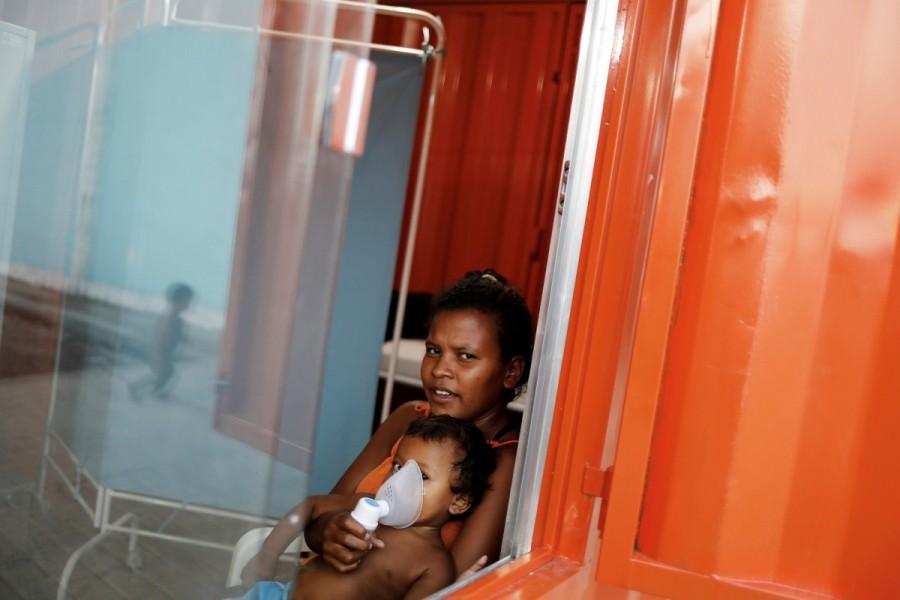
An indigenous Warao child receives nebulizer therapy by his mother at a shelter in Pacaraima, Roraima state, Brazil. "They were already begging in Venezuela, but those who gave them money are themselves asking for help today," said Sister Clara, a missionary from Brazil-based humanitarian organization Fraternidade that runs two shelters for the Warao. "Who in today's crisis in Venezuela is going to buy Warao arts and crafts?" she said.
Credit: Reuters
4 of 5
![Indigenous Warao woman bathes her baby in a bucket at a shelter in Pacaraima, Roraima state, Brazil. Many went to Venezuelan cities to sell craftwork and beg on the streets. However, when the economy tipped into crisis, they began moving to Brazil last year, often just walking across the border without documents. Venezuela's indigenous,Venezuela indigenous,Venezuela,Orinoco River delta,Warao tribe]()
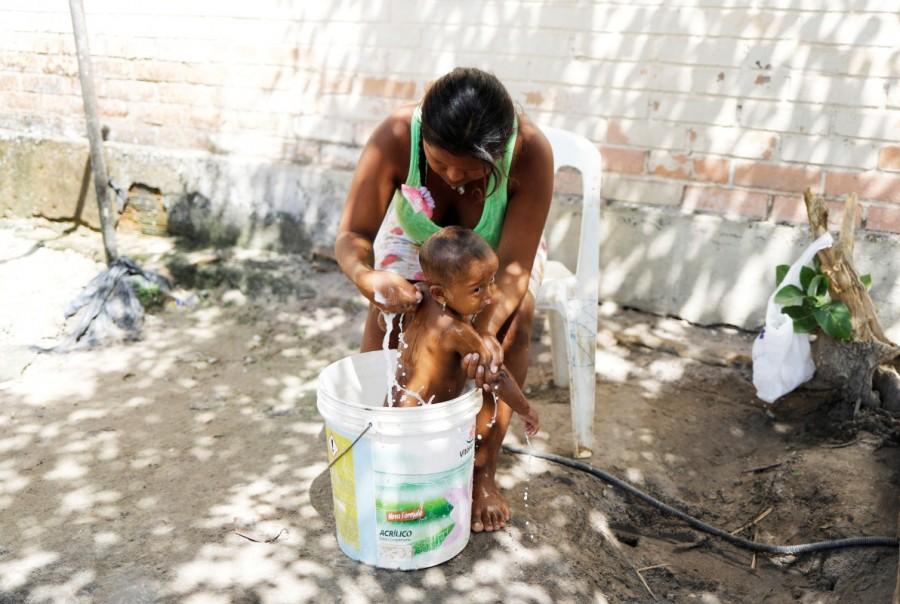
Indigenous Warao woman bathes her baby in a bucket at a shelter in Pacaraima, Roraima state, Brazil. Many went to Venezuelan cities to sell craftwork and beg on the streets. However, when the economy tipped into crisis, they began moving to Brazil last year, often just walking across the border without documents.
Credit: Reuters
5 of 5
![Indigenous Warao women cut fish in front of tents at a shelter in Boa Vista, Roraima state, Brazil. Venezuela's indigenous,Venezuela indigenous,Venezuela,Orinoco River delta,Warao tribe]()
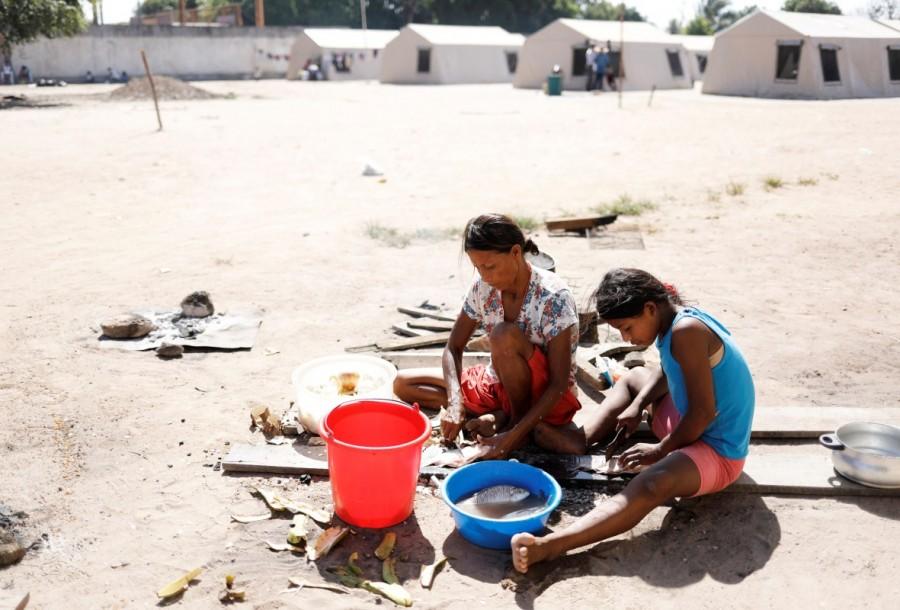
Indigenous Warao women cut fish in front of tents at a shelter in Boa Vista, Roraima state, Brazil.
Credit: Reuters





